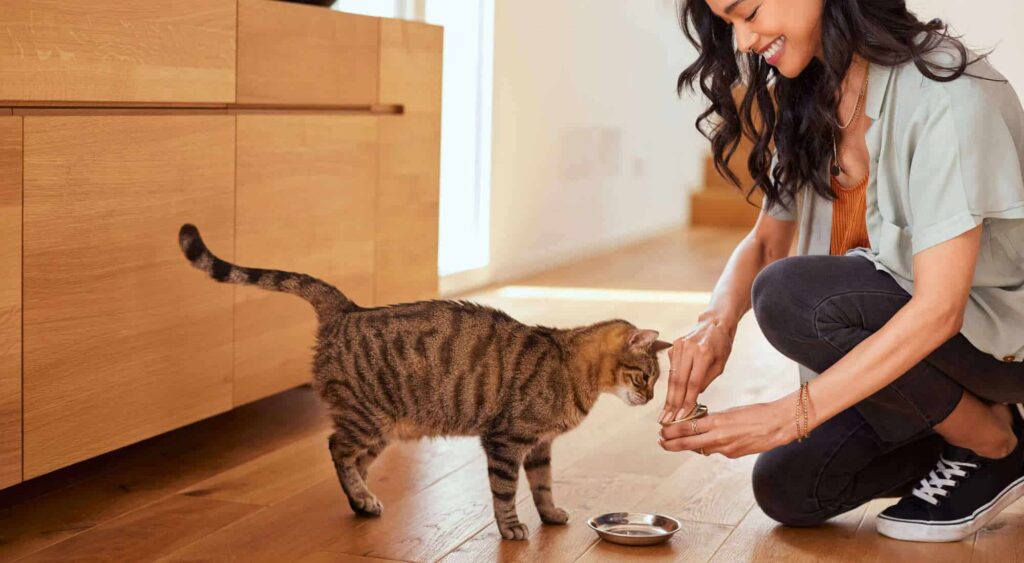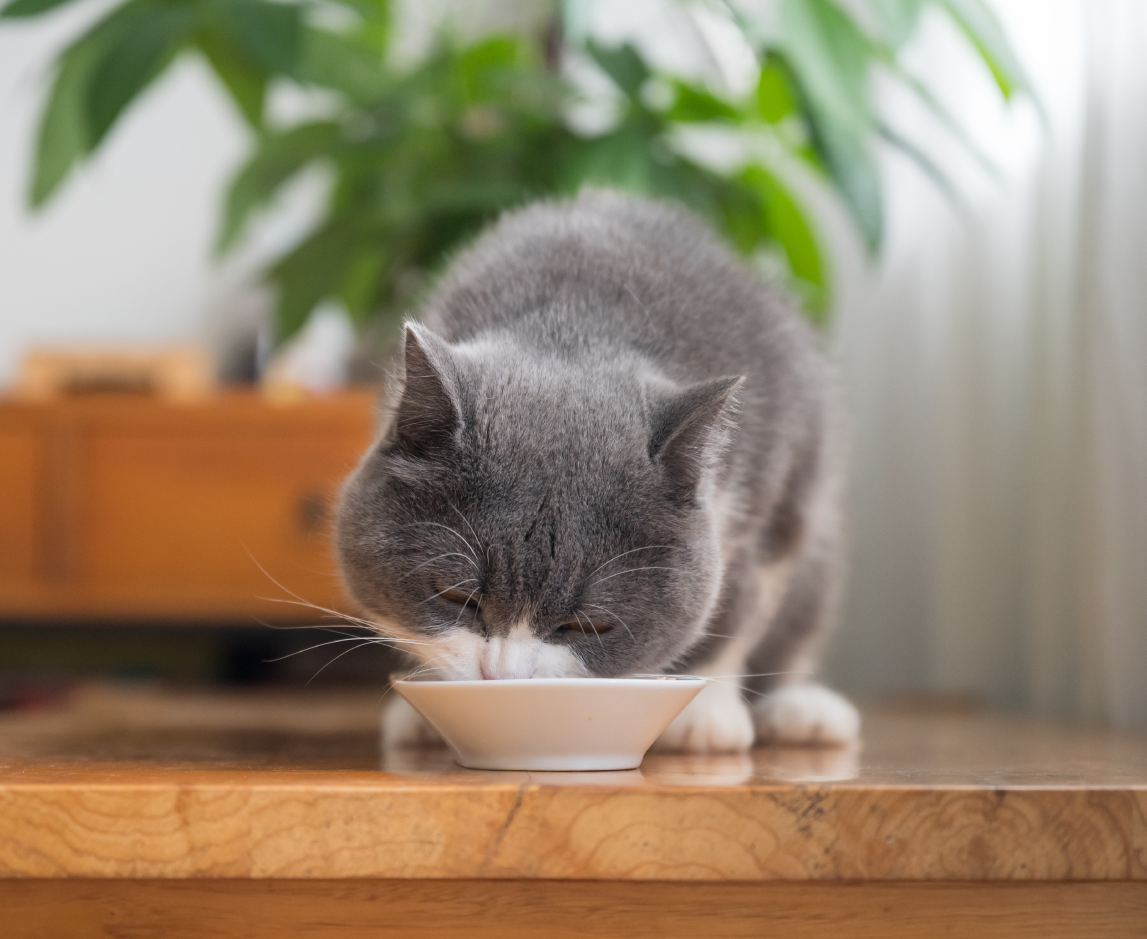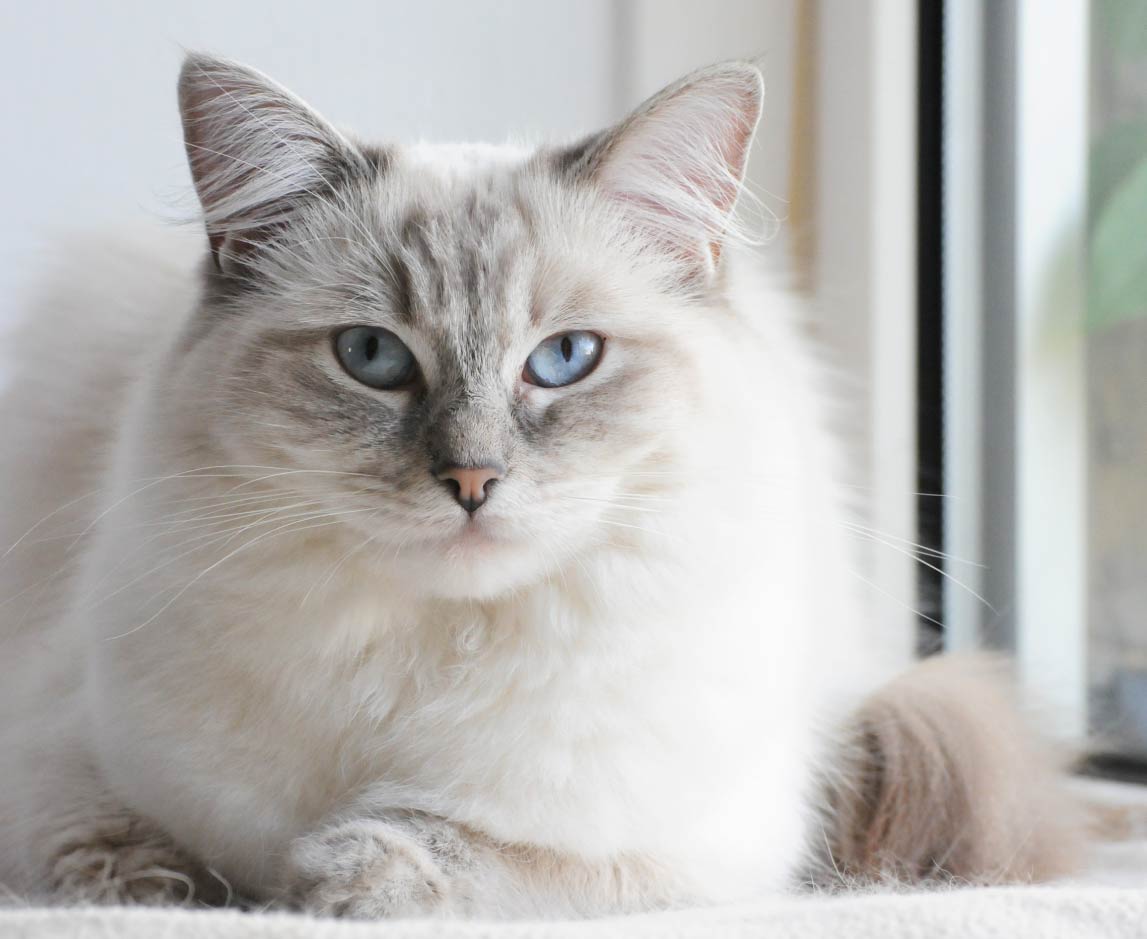You’ve probably spent some time in a grocery store aisle reading over the ingredient list on a snack or beverage and contemplating what’s in the recipe. The same should be true when it comes to choosing the best food for our pets. In this blog post, we’ll take a close look at a common ingredient in wet pet food — guar gum — and whether it’s a safe or beneficial addition.
What Is Guar Gum?
There are a wide variety of gums that are often used as thickeners and binding agents to give food — including wet cat food — a more palatable texture and consistency.
Guar gum in particular is a thickening agent derived from guar beans, a drought-resistant plant in the pea family. Though guar gum is generally recognized as safe (GRAS) for human consumption by the Food and Drug Administration, there is some controversy about appropriate amounts, especially when used in pet food. Some argue that guar gum may contribute to digestive issues or allergies in pets, while others claim it’s a safe and effective ingredient.
Is Guar Gum Bad For Cats?
The questionable safety of common ingredients found in pet foods, including guar gum, is an ongoing topic of discussion.
One common take is that guar gum can have harmful effects on animals — including suppressed appetite, stunted growth and digestion problems — when given at high concentrations of around 10% to 15% of their body weight.
The main issue seems to be the high viscosity of the gut contents caused by the gum, which affects the absorption of nutrients. These concerns can be avoided when used in lower concentrations, about 0.5% to 1%. Anything higher can interfere not only with the nutritional value of the food but also its taste and texture.
Alternatives to Guar Gum In Cat Food
So if guar gum is not inherently bad or toxic, the question becomes: Is there a better option for improving food texture?
Pet food manufacturers are constantly exploring options to maintain palatability and stability without compromising feline health. Here are some alternatives gaining attention:
Agar Agar
Agar agar is a naturally occurring compound found in red seaweed that helps give a thick consistency, often used in dog and cat food. With longstanding cultural significance in Japan, Indonesia and Spain, agar agar is carefully collected and widely used in regional cuisine.
Fenugreek Seeds
Fenugreek is one of the oldest cultivated medicinal plants native to southern Europe and Asia. The fenugreek seeds act as a binder, replacing inexpensive commercial gum binders.
The seeds are naturally rich in many vitamins and minerals, able to simultaneously bind to toxins to be expressed by the body. They’re able to lower blood sugar, making them a recommended food ingredient for diabetics. They are also an excellent source of fiber, which aids in digestion.
Flaxseed Meal
Flaxseed meal offers both nutritional benefits and texturizing properties. Rich in omega-3 fatty acids, fiber and protein, flaxseed meal supports overall feline health while helping to maintain food stability. Its ability to bind ingredients together and improve palatability makes it a popular choice among pet food manufacturers seeking natural alternatives.
Learn more about what you’re feeding your cat with our free pet food label guide >>
Guar Gum Allergy Considerations
Though we often think of protein sources as the main trigger when it comes to pet allergies, some cats can experience an immune, or allergic, reaction to guar gum. Symptoms can include:
- Constipation
- Delayed movement of GI tract
- IBS
- Flatulence
- Bloating
These symptoms of GI distress can signal any number of issues, but a true allergic reaction involves an immune response. Whether allergic reactions occur with other gum types is unclear, but both xanthan and guar gum are suspected allergens with carrageenan, producing similar reactions.
FAQs
How much guar gum is considered safe for cats?
Although guar gum has been classified as GRAS for use in cat nutrition recipes, the information we’ve discussed today may lead you to ask how much is safe? Fortunately, as with many gums that receive GRAS status from the FDA, it means the substance is not harmful in commonly-used amounts. However, for cats suffering from otherwise unexplained GI issues or weight loss, eliminating gums from their diet can provide relief.
Are there specific cat breeds more sensitive to guar gum?
It seems that there is very little research regarding specific breeds and their hypersensitivity to guar gum. However, the evidence of senior cats having reduced nutrient absorption, particularly fat and protein, is consistently shown across research.
Why RAWZ?
When it comes to selecting the best food for our beloved pets, it's important to scrutinize the ingredients just as we do for our own meals. For gum-free, small-batch recipes that prioritize your pet’s health, find an authorized RAWZ retailer near you.





